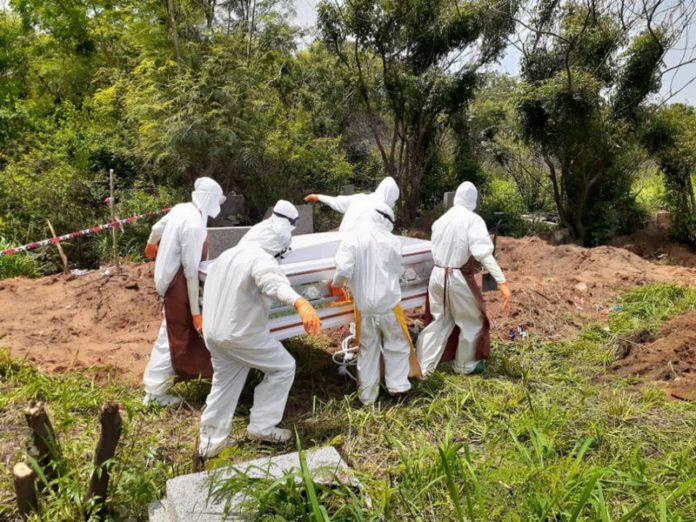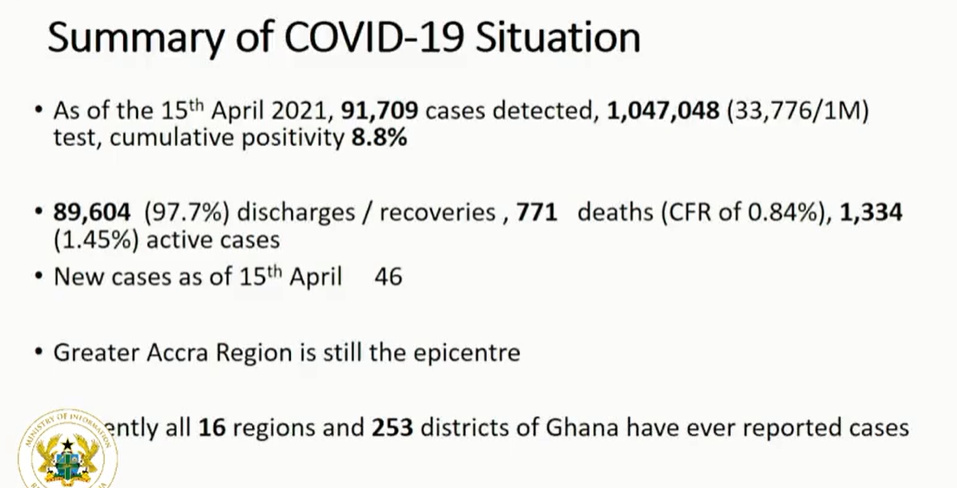
The Ghana Health Service (GHS) has indicated that eight more Ghanaians have succumbed to the Covid-19 pandemic.
According to GHS Director-General, Dr. Patrick Kuma-Aboagye, the country’s death toll now stands at 771.
As of April 10, the number of persons reported dead were 763 with new and active cases at 84 and 1,413 respectively.
But speaking at a press briefing held by the Information Ministry Sunday, Dr Kuma-Aboagye intimated that the number of new cases and active cases reported nationwide were 46 and 1,334 respectively.

In view of the cases recorded, the country’s cumulated confirmed cases is 91,709 and out of that 89,604 are said to have been discharged from various health facilities after showing recovery signs.
Dr Patrick Kuma-Aboagye also made mention that the capital city of Greater Accra Region remains the hotspot for contracting the deadly virus among the 16 regions in the country.
“Greater Accra remains the epicentre because more than half of the 46 new cases were detected in Accra. The five key regions are Greater Accra, Ashanti, Eastern, Western and Central Regions,” he added.
However, he noted that some seven out of 260 districts in the country have still not reported any Covid-19 case.
Touching on the Covid-19 data at the Kotoka International Airport (KIA), he revealed that as of April 17, a total of 1,435 cases were recorded.
Out of this, 871 cases which constitute the majority are non-Ghanaians. From the total case recorded at KIA, he noted that 915 are males while 520 are females.
Meanwhile, the Ghana Health Service has revealed that the adherence to the Covid-19 safety protocols coupled with the ongoing vaccination exercise is aiding the country in its fight against the virus.
“It is both the protocols and now we can say that the vaccine we have received is also playing a major role in preventing the spread of the virus. We are still doing our segmentation for the most vulnerable. It is not a lot but we still have some vaccines for the most vulnerable which is being deployed. But it is not enough. We are looking to get in more vaccines to address that,” Dr Kuma-Aboagye stated.





